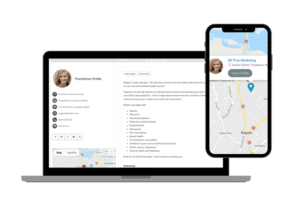The gut-brain axis is important in regulating stress-related responses. During times of physical and psychological stress, the bi-directional signalling has an impact on neuroendocrine function, immune activation, altered intestinal permeability, changes in enteric sensory-motor reflexes. This is a new and emerging field called “psychoneuroimmunology”, the study of the mind on health and resistance to disease. Not until recently, the microbiome has been studied for its influence and effect on the gut-brain axis. In fact, it has become clear that bacteria are required for normal brain development and brain function. Additionally, the microbiome has been shown to play a critical role in neuroplasticity and neurogenesis.
Interestingly, researchers have begun to identify that physical and psychological stress can modulate the actual composition of the microbiome, especially at key neurodevelopmental windows. Several mouse studies have demonstrated that the gut microbiota has an influence on stress-related disorders, including anxiety and depression. The manipulation of bacterial composition has shown to influence neurotransmitter systems like dopamine and serotonin secretion.
These findings have profound meaning in today’s society as children and adolescents are faced with new challenges and a new “normal”. With disruptions in social schedules, high expectations for remote learning, and changes in daily routines, it’s critical to implement strategies to help prevent over-stressing during critical years of neurological development. According to Dr Nicole Beurkens, stress may manifest differently children. Unlike adults who exhibit stress through signs of lethargy and fatigue, many children appear wired and over-stimulated. This may translate into difficulty sleeping, concentrating during schoolwork, and other behavioural challenges.
Additionally, the microbiome has an intimate relationship with the immune system and is referred to as the microbiome-immune system crosstalk. The gut itself is an important immune organ and nearly 70% of your immune system resides in the gut. The immunomodulatory effects of spore-based probiotics have been shown to improve T-cell populations and secretion of the anti-inflammatory cytokine Interleukin 10. On the other hand, gut dysbiosis supports an inflammatory process that activates the immune system and proinflammatory cytokines like Tumor Necrosis Factor Alpha. These changes can have a direct impact on immune function, signalling, and brain health.
According to Dr Beurkens, “stress is a multi-systems problem, and it requires a multi-systems solution”. Improving the stress response would include multiple factors such as diet therapy, reconditioning the gut, calming exercises, and positive affirmations. Implementing simple cognitive behaviour therapy techniques and recognition of daily achievements can help restructure our neural pathways to focus on positive aspects of the day. Lastly, it’s important for parents to utilize similar techniques as it can their stress can translate to more stress in children.
Intelligently reconditioning the composition of the microbiome can translate to protective brain benefits, especially during important developmental periods. Several studies have shown that dietary modification alters the microbiome and can help improve stress-induced behaviour deficits. Some dietary examples include omega-3 fatty acids, prebiotic fibres and oligosaccharides, and a polyphenol rich-food. Using a spore-based probiotic like MegaSpore has been shown to improve alpha-diversity and support the growth of important keystone species of bacteria. These bacteria play an important role in short-chain fatty acid production that plays a critical role in immune health and function.
Recognizing signs of stress in children and taking a proactive approach can make a significant impact on their neuro-cognitive development. As parents, we strive to improve our stress responses in ourselves and our children will help improve the composition of our microbiome and the functioning of our gut-brain axis.











































